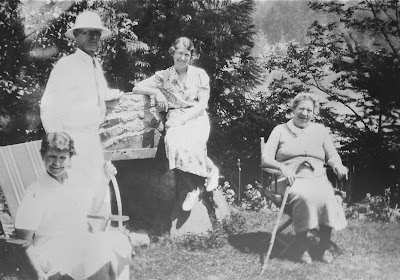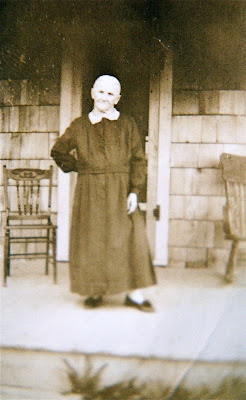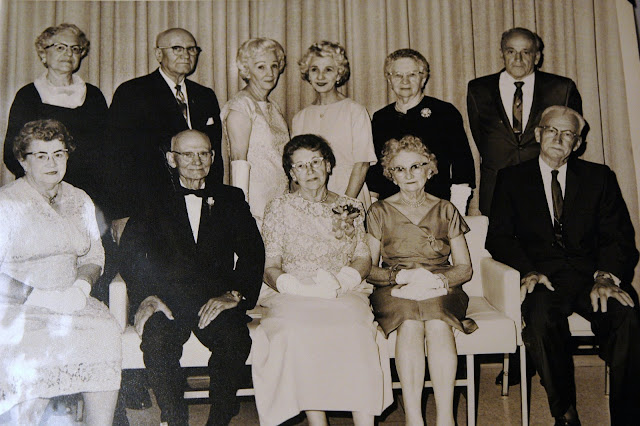
William Head, Sr. -- St. Peter Port, Guernsey Island.

The Guernsey Girls with a bevy of cousins: St. Peter Port, Guernsey Island.
For over a century five generations of our family have graced the hallowed ground of beautiful Oregon
Upon arriving in the countryside west of the city of Portland Willamette River
This may have been prompted by the very rough trip she took across the Atlantic from Guernsey Island
Mother's family came from the isle of Guernsey in the English Channel . Grandfather was a wealthy owner of an estate who, together with his two brothers in fact literally “owned” the island with their business of draying, breeding, and butchering the famous Guernsey cattle {ed: Guernsey were dairy cattle so it seems unlikely it was this breed, and although documents do suggest the Head family were well-off by the time the Guernsey Girls were young, nothing I've seen implies they 'owned' the island. When William Sr. was 19 his sisters were listed in the Guernsey census as housemaid and dressmaker and William Jr. as a 'carter'}.
Mother tells of the live-in dressmaker, upstairs and downstairs maids and the black stable boy who attracted hundreds of residents, sometimes bicycling across the island to peek at the only black man ever to live on Guernsey . A picture in my photo album shows him grinning from ear to ear, wearing a handsome broad-brimmed hat and posed with a magnificent mare.
In 1874 {ed: incorrect date, it was 1906} Grandfather, having the means and desire to travel on the Titanic, tried to make reservations for his family of seven {ed: Titanic first sailed in 1912}, Grandmama and five girls: Mildred 16, Elva 13, Everilde 10, Olive 7 (she celebrated her birthday aboard ship), Ruth 2. {ed: Ruth was 4 when they sailed}
Fortunately, the ship was already booked or none of us would be here today. {ed: the family did emigrate to the U.S. from Canada in 1912, perhaps that is where this story comes from}. He had to wait several weeks to get any passage because the giant Titanic had exhausted all the coal supply.
They eventually boarded the “Lake ” in Liverpool ...the normal 300 passengers, there were 60 from the large number of immigrants picked for steerage. The Head entourage naturally were in first class and when the captain found out that the young girls after days at sea were very ill from seasickness, he ordered a crate of fresh grapes from the hold to sustain them for the 14-day trip. The sugar and the juice from the grapes offset dehydration and upon arriving in old Quebec city St. Lawrence River , they were unable to enjoy sightseeing for the two days spent before continuing to Prince Albert









.JPG)










